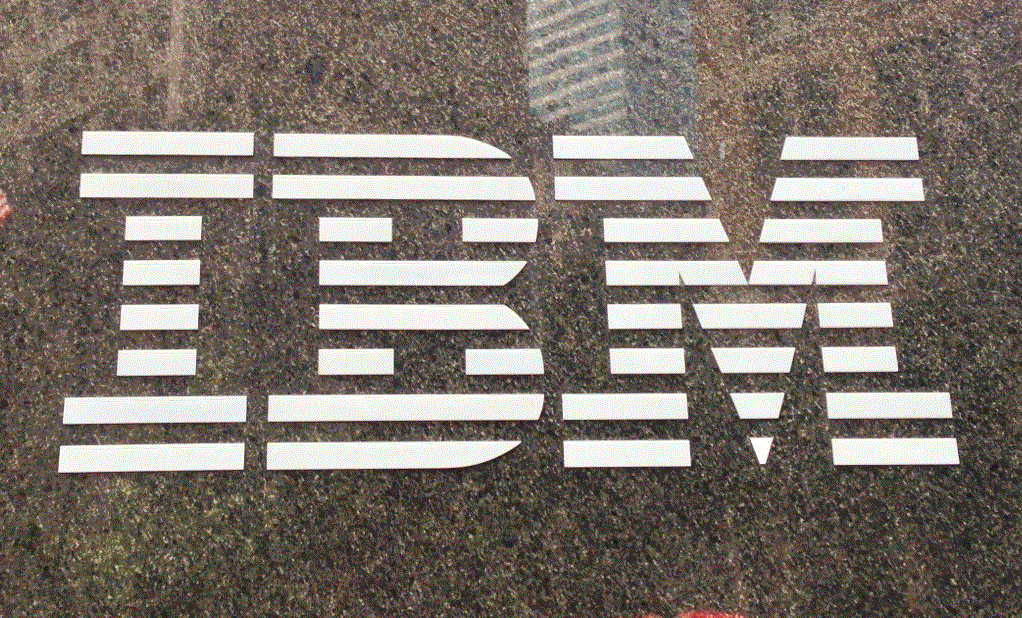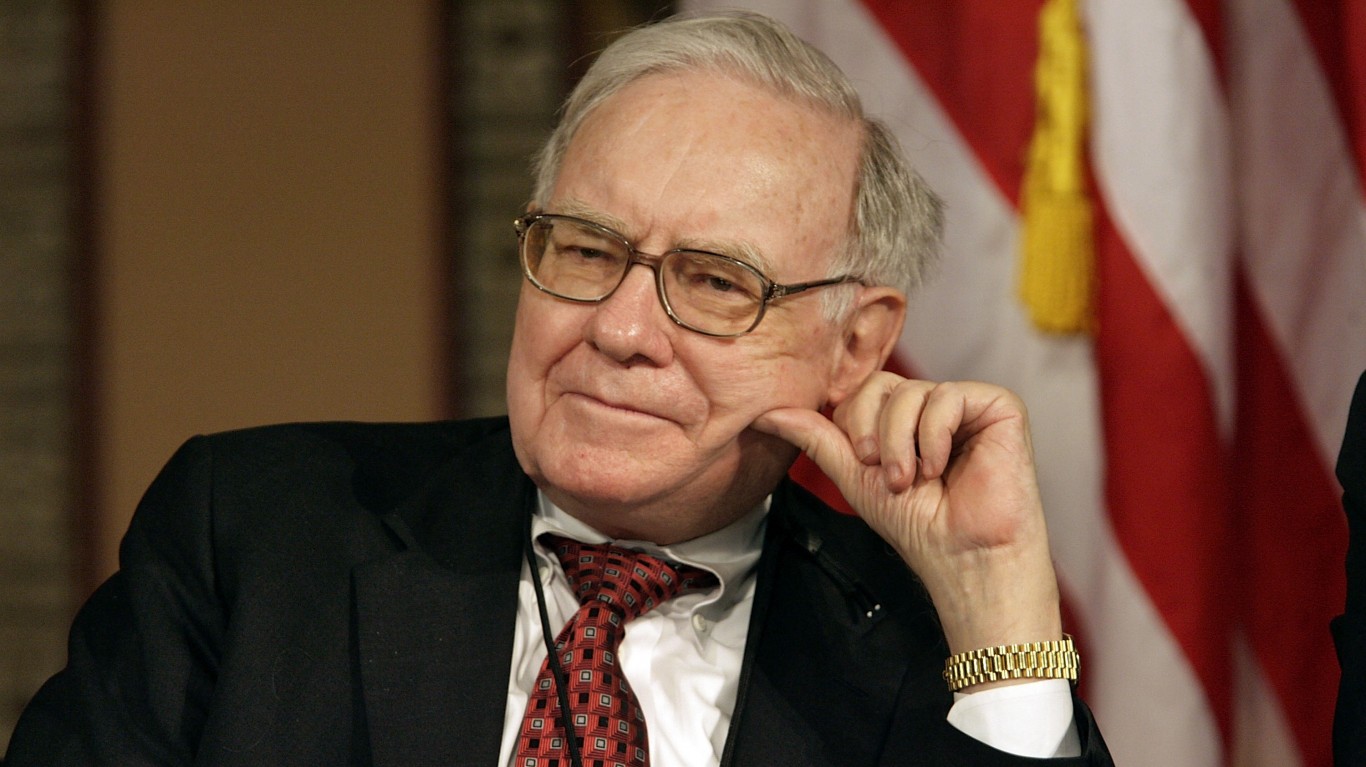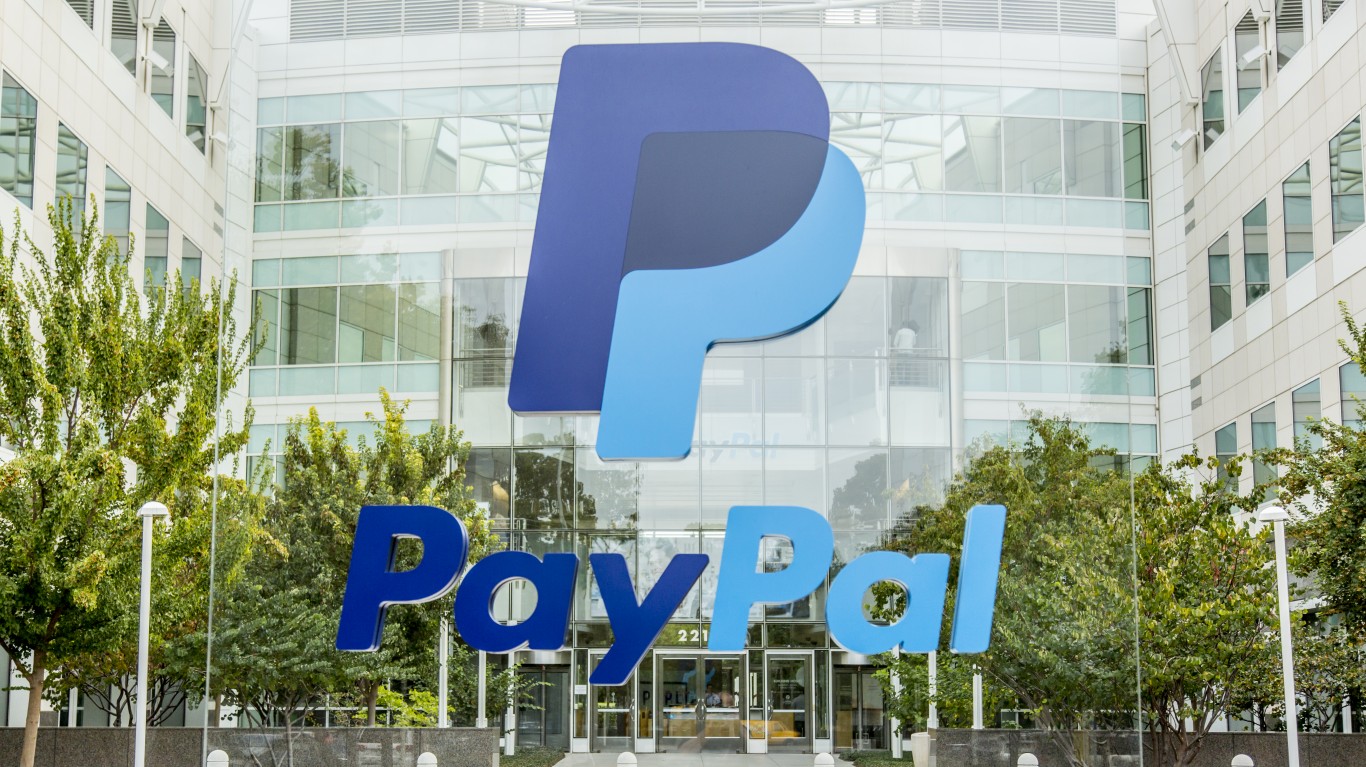The bull market is now almost six years old, and the 2014 gains were 7.5% in the Dow Jones Industrial Average (DJIA) and 11.4% in the S&P 500 Index. Those index performance metrics do not consider the dividends of individual stocks, but International Business Machines Corp. (NYSE: IBM) closed out 2014 at $160.44, for a loss of 12.4%.
24/7 Wall St has reviewed a bullish and bearish case for IBM and other DJIA components to see what lies ahead for 2015 and beyond. IBM was also the DJIA’s biggest loser of 2014. Is there a case to be made that IBM could become the magic turnaround Dow stock in 2015 or beyond?
IBM had a 2014 trading range of $150.50 to $199.21, and the consensus analyst price target of $168.67 as of the end of the year would imply upside of about 5.1% this year. Then there is the dividend yield of 2.7% to boot. One thing to consider here is that IBM spends more effort and capital buying back its stock than it does on the dividend for common holders. IBM’s 2014 performance on a raw unadjusted price basis, without considering the dividend, would have been -14.5%.
IBM had a market cap of $159 billion at the end of 2014, and it got off to a rough start in the first few trading days of 2015, with shares falling another $5 or so.
CEO Ginny Rometty unfortunately may be in a no-win position. Her strategy has been to stick with much of IBM’s prior policies. This includes cost cutting and spending money on share buybacks instead of making sensible bolt-on growth acquisitions. Sure, the cloud and Watson are there as initiatives. But IBM is still considered an old-school IT services giant.
ALSO READ: The Bullish and Bearish Case for GE in 2015
Rometty is sticking with the endless stock buyback plan. IBM’s dividend yield of over 2.7% is an “accidentally high yield” due to the performance of IBM’s stock being so poor. Late in October came word that Rometty and her team approved another $5 billion for share buybacks, on top of some $1.4 billion that remained under a prior buyback plan, with a note that the company expects to request additional share repurchase authorization at the April 2015 board meeting. Hint on bad buybacks: IBM shares were almost $3 higher at the buyback announcement versus the end of 2014.
To show how poor things are here, 24/7 Wall St. recently covered IBM as the worst run of the large American behemoths for 2014. Still, value investors and bottom fishers are attracted to IBM because of a low valuation. It was featured as one of the five cheapest DJIA stocks as well, with an expected price-to-earnings ratio currently under 10. A report in late 2014 from Credit Suisse was very negative, effectively calling the stock a serious short sell with a price target of only $125 at the time. That is the lowest price target among all public Wall Street analysts.
Another issue is IBM’s balance sheet. It had some $32.8 billion in long-term debt at the end of September, along with total liabilities of $104.6 billion. Yahoo! Finance even showed the balance sheet having negative net tangible assets for at least the past three years. That figure removed some $35 billion or so in goodwill and intangible assets of 2013 from the balance sheet. Still, IBM’s September 30 balance sheet had over $9.5 billion in cash and cash equivalents and another $16.1 billion or so in long-term investments.
24/7 Wall St. also named IBM as one of 10 companies and stocks that would not be saved by the bull market alone. In essence, IBM will have to make some big decisions ahead to get its stock back on track.
One bit of good news is that IBM is still one of the planet’s top spenders in research and development. Why this matters is that companies with large R&D budgets are said to make for some of the most sound long-term investments. Does that mean that IBM could be an accidental DJIA winner in 2014? Perhaps, but something currently not priced into the stock has to occur.
ALSO READ: The Bullish and Bearish Case for AT&T in 2015
IBM only just recently finally dropped its $20 in earnings per share goal for the end of 2015. IBM has been cutting costs endlessly to get there, and frankly it was weighing heavily on workers inside the company. Even a company as large as IBM can only take out so much incentive from technology salespeople before they go elsewhere. IBM is supposed to be one of the backlog kings. Even with that backlog of $128 billion at the end of the last quarter, that was down 7% from a year earlier and its margin was under pressure as well.
Having Warren Buffett as a top shareholder is supposed to be a good thing. It has not helped IBM at all, despite the stock now being a top holding at Berkshire Hathaway. It was announced in 2014 that GlobalFoundries would acquire IBM’s Microelectronics OEM semiconductor business and manufacturing operations. Unfortunately, that loss from discontinued operations in the third quarter included a non-recurring pretax charge of $4.7 billion, or $3.3 billion net of tax. IBM even disclosed that it would transfer approximately $1.5 billion in cash to GlobalFoundries in the deal.
After a dividend-adjusted performance of -12.4% in 2014, IBM’s total upside, with the dividend included, for 2015 is expected to be 7.8%. The good news is that IBM’s highest analyst target price of $198 would imply upside north of 25%, if you include its dividend yield. The bad news is that analyst price targets here have tended to keep drifting lower for more than a year now.
It is very easy to remain negative when it comes to IBM. Still, investors often look for the DJIA’s biggest losers to be the surprise recovery stocks for the next year. IBM peaked around $215 back in early 2013, but that now feels like a very long time ago. If Rometty has any big plans up her sleeve, she might want to get them started.
ALSO READ: The Bullish and Bearish Case for Cisco in 2015
“The Next NVIDIA” Could Change Your Life
If you missed out on NVIDIA’s historic run, your chance to see life-changing profits from AI isn’t over.
The 24/7 Wall Street Analyst who first called NVIDIA’s AI-fueled rise in 2009 just published a brand-new research report named “The Next NVIDIA.”
Click here to download your FREE copy.
Thank you for reading! Have some feedback for us?
Contact the 24/7 Wall St. editorial team.



